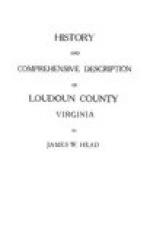“Gentlemen, this is no party convention. It is our duty on an occasion like this to elevate ourselves into an atmosphere, in which party passion and prejudice can not exist—to conduct all our deliberations with calmness and wisdom, and to maintain, with inflexible firmness, whatever position we may find it necessary to assume.”
The proceedings were dignified, solemn, and, at times, even sad. During the entire session good feelings prevailed to a remarkable degree. For these harmonious relations credit is principally due the secessionists. Very often their actions were regarded with suspicion by their opponents who, at such times, pursued a policy of obstruction when nothing was to be gained thereby. But they were given every privilege and shown every consideration.
On April 17, 1861, the convention, in secret session, passed the ordinance of secession by a vote of 88 to 55 on condition that it should be submitted to the people for their approval or rejection at an election to be held the 23d of May for that purpose. Loudoun’s delegates voted solidly against the measure.
In the convention opinions varied as to whether peace or war would follow secession. The great majority of the members, as of the people, believed that peaceful relations would continue. All truly wished for peace. A number expressed themselves as fearing war, but this was when opposing secession. Yet in nearly all the speeches made in the convention there seemed to be distinguishable a feeling of fear and dread lest war should follow. However, had war been a certainty secession would not have been delayed or defeated.
There was warm discussion on the question of submitting the ordinance to the people for ratification or rejection. Many, both before and after the passage of the ordinance, favored its reference to the people in the vain hope that the measure would in this way be frustrated. They declared that, in a matter of such vital importance, involving the lives and liberties of a whole people, the ordinance should be submitted to them for their discussion, and that secession should be attempted only after ratification by a direct vote of the people on that single issue.
Affecting and exciting scenes followed the passage of the ordinance. One by one the strong members of the minority arose and, for the sake of unity at home, surrendered the opinions of a lifetime and forgot the prejudices of years. This was done with no feeling of humiliation. To the last they were treated with distinguished consideration by their opponents.




